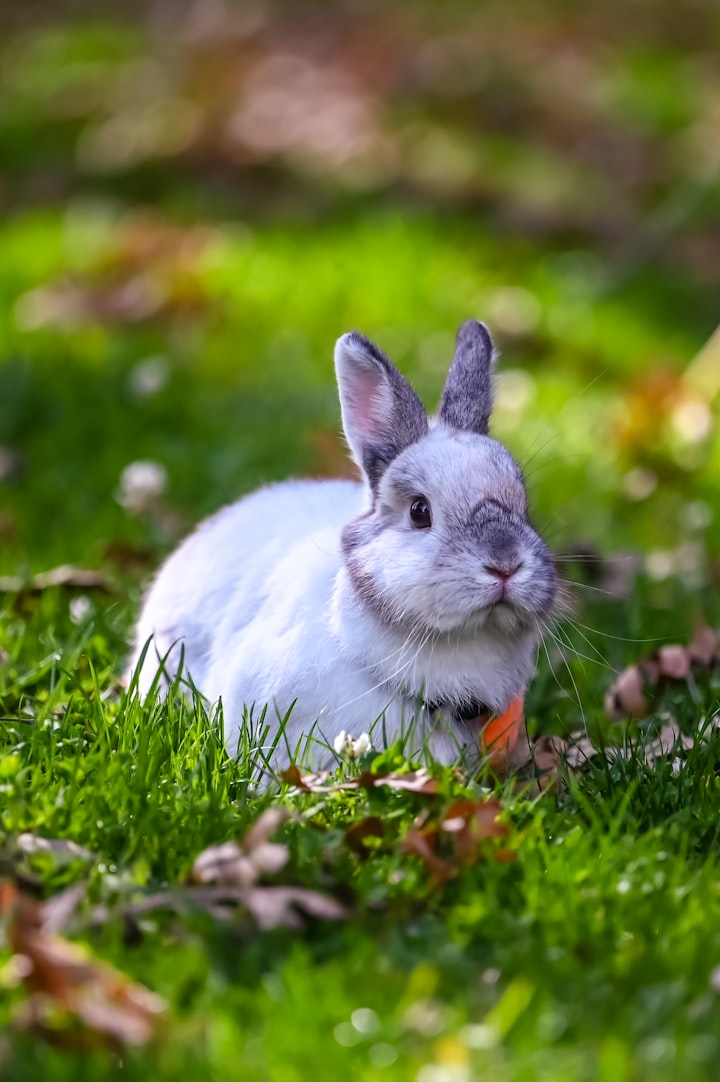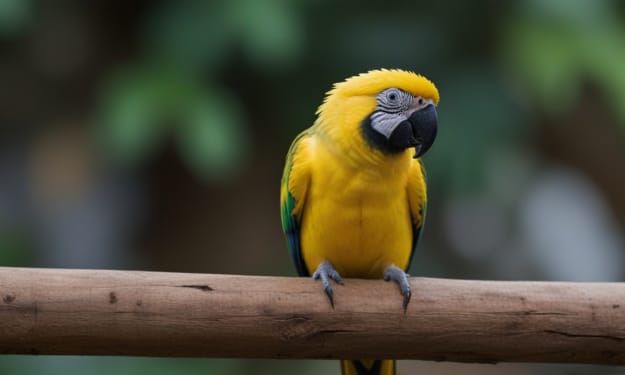It’s music to my Bunny’s ears
How does music affect rabbits? Can music therapy help rabbits in a similar way it does to humans? Can certain type of music improve bunnies’ welfare? Let’s explore the rabbit’s sense of hearing!
British spelling
The secret life of the rabbits
Playing classical music to pets — and animals in general — can reduce their stress levels and improve their welfare. It works with humans as well. However, the music we play to our dear pets, especially to pet rabbits, must be carefully selected. Rabbits have an extremely good hearing.
Loud sounds and certain sound waves can affect and scare rabbits badly, pretty much like they do to cats and dogs during fireworks. The difference is that rabbits don’t vocalise their fear, like cats and dogs do.
Moreover, the unfortunate rabbits that are confined to a small and restricted caged area will not be able to find a safe place to hide. It can be terrifying for bunnies.
There are special compilations of music for rabbits that work like a charm by relaxing and calming stressed bunnies.
Music for Rabbits: How much can rabbits hear?
As prey animals, rabbits have very good hearing so they can know with enough time when a predator is approaching. Bunnies pay attention to noises that may alert them from danger and predators.
Bunnies can detect soundwaves in the ultrasonic region (up to 49,000 Hz). Rabbits are better at hearing high-pitched sounds and struggle to hear lower-pitched sounds.
The shape of their ears also play a role. Wild rabbits and pet rabbits with erect ears can swivel their ears 270º and can move both ears independently.
‘Lop-eared rabbits’ (also called lop rabbits) refer to any rabbit with ears that droop, as opposed to being carried erect. Some of these rabbits may be near fully or totally deaf because the ear canal is folded over and narrowed, making it harder for soundwaves to pass through the kinked section of lop-eared bunnies.
Representatives of this species include the Holland Lop, Mini-Lop (also called Dwarf Lop), American Fuzzy Lop, French Lop, English Lop, Miniature Lion Lop, Cashmere Lop, Mini Cashmere Lop, Meissner Lop, and Velveteen Lop.
Noises rabbits make and their meaning, and how rabbits react to certain noises
Noises are important for rabbits as a way of communication. They thump with their hind feet when they want to alert other rabbits or to show you they are angry if you did something they don’t like. They scream if they are very scared and fear for their life. Rabbits get scared very easily and they can even die of fear or stress.
They make chattering noises with their teeth when they are content. This may sound like a purr. You may hear or feel this when you slowly and softly pet your rabbit on his head which is is their favourite place to be pet. But don’t pick him up.
Rabbits enjoy petting when they remain on the ground since they feel safe. Most rabbits don’t like to be picked up or handled because this is embedded in their DNA as a sign of being in danger or being picked up by a predator.
Rabbits pay attention to other noises that may indicate the presence or a predator or some other danger. They use their ears to monitor the environment. They are able to tune out safe sounds like a bird song or the familiar voice of their human parent. But they can react quickly to unexpected, unfamiliar, or loud sounds that might indicate danger.
If your rabbit makes a teeth grinding sound you must pay attention and consult with an exotics pets vet. Rabbits tend to grind their teeth loudly if they are unwell, in pain, or stressed.
How does music affect rabbits? What kind of music do bunnies like?
Classical music, meditation music, or other soft instrumental music can be used to mask stressful sounds for a rabbit, such as the noise of certain human activity.
Music can be a form of enrichment to which pet rabbits can sense, perceive, and respond to. Music can also modulate the bunnies’ psychological or emotional arousal.
How rabbits react to music
Learning behaviour by association and memory association are two important characteristics in rabbits. If a rabbit has learned that something nice happens when he hears music he will anticipate something nice when he hears the music.
Something nice can be a treat he likes, getting some petting while he stays on the ground feeling safe, you coming down to his level on the floor for some play time or any interaction, or perhaps simply changing and restocking his hay.
The rabbit may simply enjoy the music because it’s associated with your presence when you are at his sight for an extended period of time.
I use to play his rabbit music or classical or some light instrumental jazz when I am writing. Mr Bunny is a free roaming bunny and he can always see what I am doing and follow my movements.
Sometimes, when I have to go out, I leave the music playing so he thinks I am around. Calming music helps with separation anxiety if the music is something familiar to him.
Situations when music improves a rabbit’s welfare
According to the Rabbit Welfare Association and Fund, there are some situations in which we can use music in order to improve our rabbit’s welfare, including the following:
To reduce stress during transportation or hospitalisation:
There are certain events in a rabbit’s life that are very stressful. In these situations, providing familiar stimuli to rabbits may help them to feel less stressed. Typically, we think about providing one of the rabbit’s blankets or towel that smells of home. But we might also consider providing the sounds that the bunny associates with home. For instance, if you often play rabbit music for your rabbit at home, you may play the same music when you are with your rabbit in the car taking him to the vet.
If your rabbit needs hospitalisation, and if your vet is willing, providing the same music during the days your bunny will remain hospitalised. I personally don’t own a car and take my bunny to the vet by public transport or taxi when the weather conditions are extreme, or after a dental procedure when he needs to be quickly in his own space. Then, I put my phone in his carrier and play his rabbit music at a very low volume. I also slowly pet his head at the same time so he feels safe and can relax.
To mask unpleasant sounds:
Sometimes, there are short periods in which rabbits are exposed to stressful sounds such as repeated banging noises during building work, or fireworks. Playing rabbit music during this time will help to unmask the unpleasant the unpleasant sound and may help your rabbit to stay more relax. Be aware of the volume, though. The music cannot be too loud or it will have the opposite effect.
To provide auditory enrichment:
If your house rabbits are alone during the day when you are at work, you might consider putting some music to provide auditory variation and enrichment during the day.
Reliable resources to learn more on rabbit care, rabbit behaviour, rabbit emotions, and overall rabbit health and wellbeing:
There is so much to learn about rabbits and how to care for them. I will always include a few resources for further reading and learning about these precious companions. There is a need to spread the world about rabbit welfare.
Rabbit Welfare Association and Fund (RWAF): Ensuring all pet rabbits in the U.K. and beyond are cared for with understanding, insight, and kindness.
House Rabbit Society: Dedicated to improving the lives of domestic rabbits by elevating their living standards, quality of care, and legal status as indoor animal companions through education, rescue, and awareness.
Relaxing Music for Rabbits on YouTube by PetTunes: There are different lengths of these videos, each lasting several hours.
Let’s learn to better care for our precious bunnies!
As a bonus, here is the Abecedarian poem I wrote for my Bunny:
About the Creator
Susan Fourtané
Susan Fourtané is a Science and Technology Journalist, a professional writer with 18 years experience writing for global media and industry publications. She's a member of the ABSW, WFSJ, Society of Authors, and London Press Club.







Comments (5)
Wonderful information, Susan. For all the pets we had growing up, we never had rabbits. But our neighbors did & on occasion when they were out they would play back & forth games of tag with our cats. The first time our mother saw it happen she thought the cats were hunting them, only to become enthralled with the game they played together.
I have learned so much about bunnies now...thank you!
Awww, Mr Bunny! 🥰🥰🥰 I didn't know music can have this much of effect on animals. I used to have rabbits but not anymore. My cousin has a rabbit so I'll send this to her!
It really enjoyed reading this. It was interesting.
Awww, this is a lovely and helpful piece! We owned rabbits for a long time. Our chinchillas love music also!